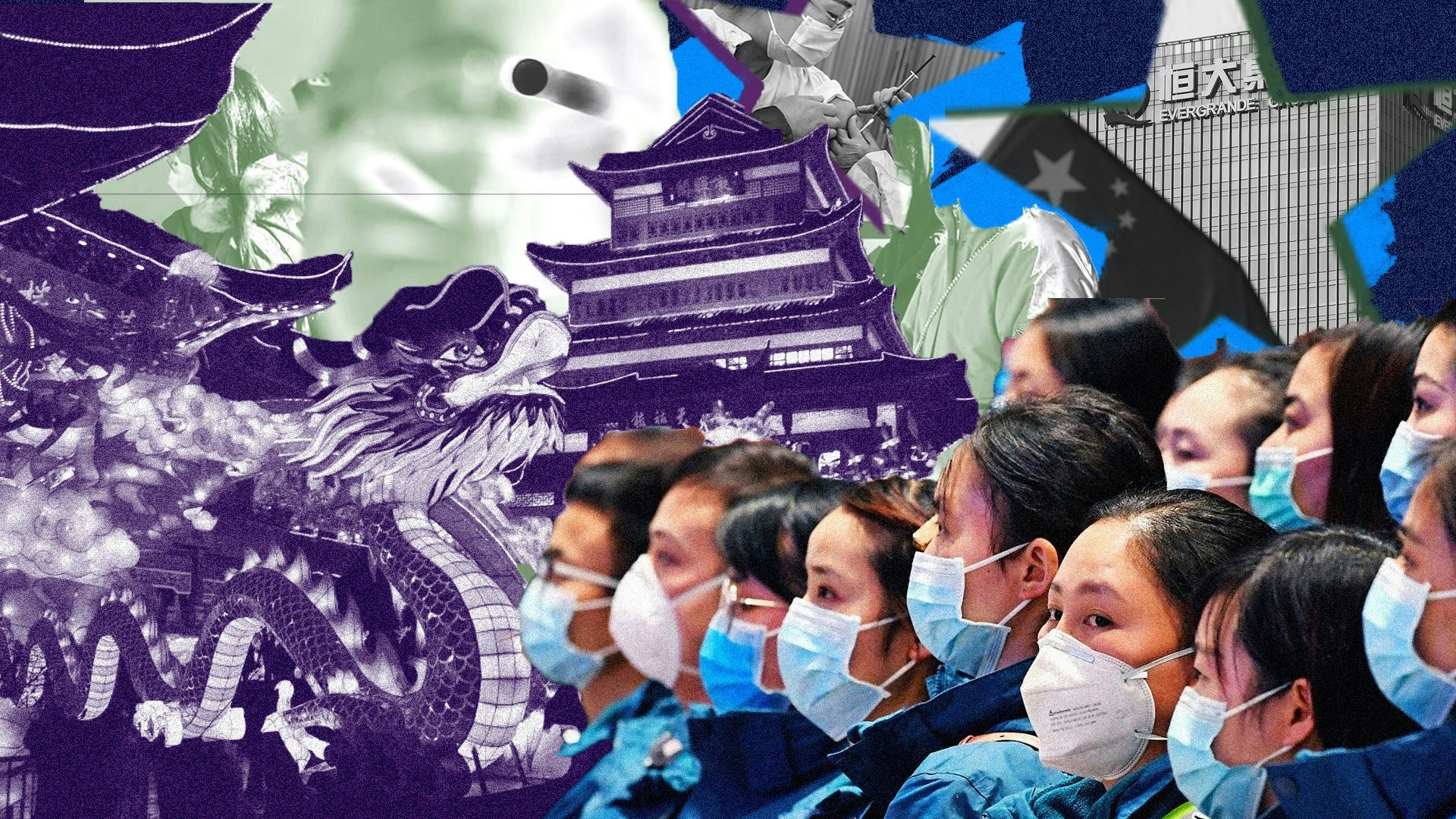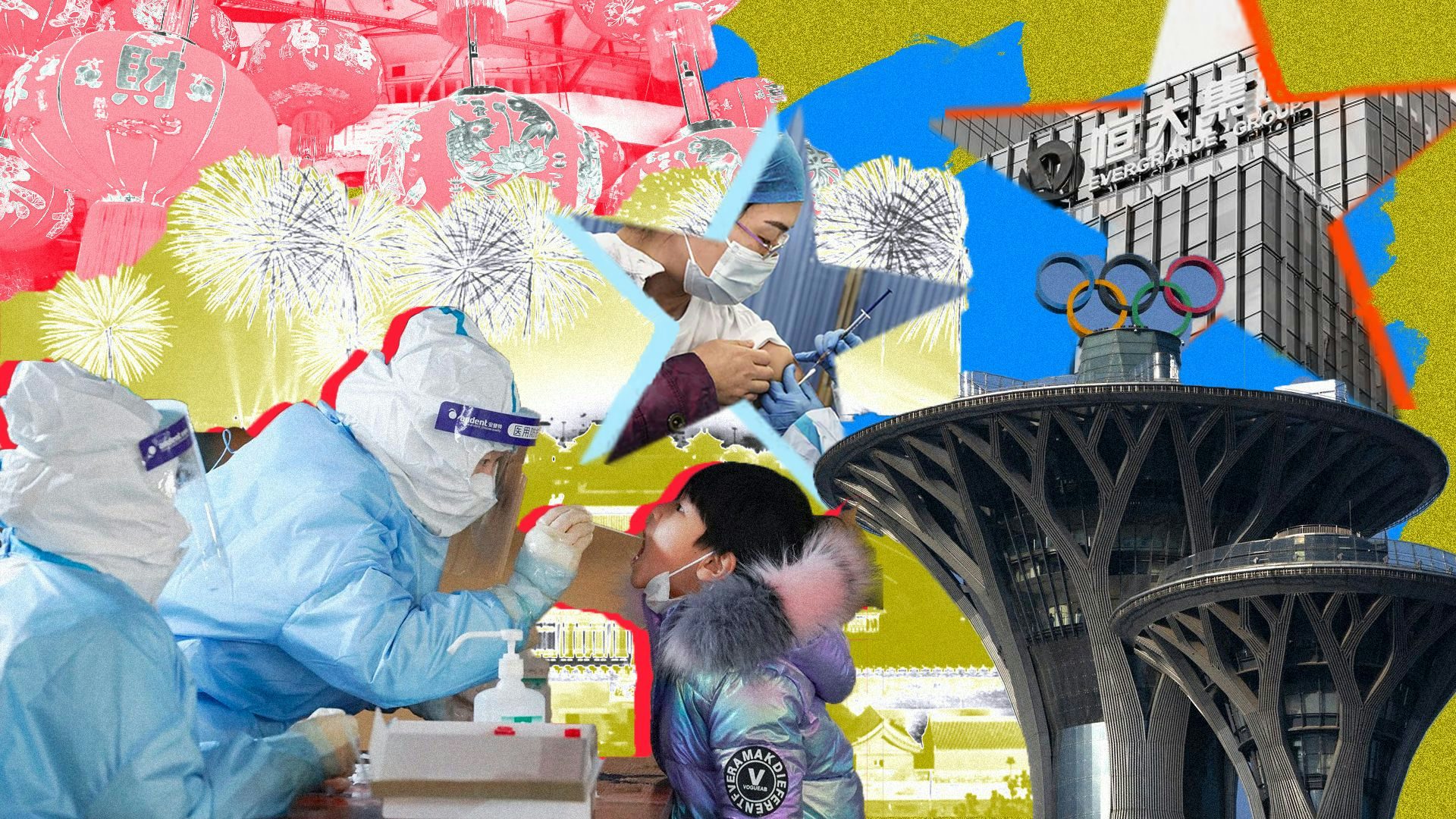Before we get all gloomy and doomy, let’s give a shout out to 2021. It was a hell of a year for the global luxury industry, especially the personal luxury goods sector. After contracting in 2020, personal luxury goods are set to beat their pre-pandemic record, with an astounding 29 percent increase last year, mainly driven by eager consumers in both China and the US. Impressive, to be sure, particularly given the number of problems that global luxury brands have had to deal with — and the many lessons they’ve had to learn — since the depths of the pandemic. Again, a round of high-fives is in order. Well done, well done.
But today, as we ease into 2022 and focus on China and its millions upon millions of luxury consumers, the forecast looks far more questionable, if not downright scary. True, a host of financial analysts believe that 2022 will not only mimic 2021’s success, but actually exceed it — despite the ongoing pandemic. For China, however, COVID-19 is only one of many troublesome forces already hitting the mainland hard in 2022, which make reporting and writing about it so problematic at the moment. Just trying to keep up with the daily — sometimes hourly — quagmires sweeping through the mainland has turned into a Sisyphean task (look what happened in just the first week of the New Year). Given this, it’s hard to imagine that China’s economy, and with it China’s vast luxury market, won’t be affected for the first six months of the year at least, if not longer. So, buckle up, it’s going to be a long, bumpy ride.
The Perfect Storm#
Let’s begin with the ongoing pandemic. With Xi’an’s 13 million residents still under lockdown, and more cities in central China’s Henan province and in Zhengzhou, known to locals as iPhone City, under COVID-19 restrictions as new infections increase daily, China’s policy of stamping out clusters quickly will have to take on extra urgency, especially with the Lunar New Year travel season later this month and the Winter Olympics in early February. However, this strategy is set to inflict more economic pain, potentially curbing consumer spending and disrupting production and global supply chains as virus outbreaks persist, according to Bloomberg, with retail sales growth expected to go as low as 3.7 percent this year from an estimated 13 percent in 2021.
Worst yet, how will Beijing react to the far more transmissible Omicron variant, especially given that China’s vaccines — Sinopharm and Sinovac — offer only some protection against severe illness? How will a series of prolonged rolling lockdowns affect not only the Chinese population, but also the Chinese economy? If it’s anything like Xi’an, where Chinese social media has been flooded with posts from residents who say they have not received food, basic supplies, and even medical care, it’s not going to be good for brand China, or its citizens, to say the least. Moreover, how will China’s impressive zero-COVID policy hold up against Omicron’s seemingly unstoppable force? If the rest of the world is any indication, it doesn’t look good — frightening news for China, and everyone else.
Let the Games Begin#
Normally, the Olympics are an opportunity for the host country to showcase its finer points. For China, however, the 2022 Beijing Winter Olympics will be mired in a series of challenges — some self-imposed, others acts of God — that will be difficult to control. To begin with, China’s zero-COVID policy will be put to the test and most likely fail (see above), as the Omicron variant slips its way through mass testing, tracing, and lockdowns. Flare-ups will likely dot the mainland and spread among athletes and coaches from around the world — all while the world’s attention is focused on the games.
Add to this the political strife already surrounding the games. Human rights activists have already pressured corporate sponsors, such as Intel, Airbnb, and Coca-Cola, to withdraw their support from what some are calling the “Genocide Olympics,” though no companies pulled out yet. Washington has led a diplomatic boycott, citing “crimes against humanity in Xinjiang, and other human rights abuses.” Moreover, the US and several other countries — Australia, Canada, the UK and Japan — have decided not to send any government representatives to the games.
Needless to say, China’s foreign ministry has warned of a “robust response” to any boycotts, including taking unspecified “countermeasures,” which could come in various forms, including leveraging China’s massive consumer market to punish any countries or companies it disapproves of — adding more economic uncertainty in an already troubled time.
Then there are the athletes themselves. Per Axios China, the Chinese government has promised them free access to social media platforms and other websites in the Olympic Village in Beijing, but internet use may still be fraught with restrictions and risks. Still, there are some athletes that have strong personal opinions. Would one dare to use the media spotlight to make a political statement? It’s happened before. Although this is prohibited by the IOC, it has said it will not sanction American athletes for protests.
The Bubble Bursts#
China has relied on real estate as a key driver for economic growth for the last two decades. In fact, the property sector has been estimated to account for roughly 30 percent of China’s total economic output. Today, however, as one property development company after another either files for bankruptcy or can’t make its payments — led by Evergrande’s spectacular collapse — a seismic shift on how the Chinese economy functions is taking place.
Beijing has countered by urging builders like Evergrande to meet payrolls in order to avoid the risk of social unrest, which sounds good on paper, but how will this actually happen for a sector that can no longer generate enough cash to service its debts? Then what? How does China’s economy pivot after relying far too much and far too long on real estate speculation, which now appears all but over? More importantly, what new growth engine — increased domestic consumption, green technology — could take its place? For now, China and the world at large are left with the disconcerting reality that this real estate bubble, which has already slowed China’s economy, will only get more ominous as the year goes on.
Where does this leave us?#
Before we look into a crystal ball, perhaps we should take one last moment to highlight a handful of other worrisome issues swirling around China right now, such as the millions of Chinese wrestling with the Spring Festival, the world’s largest annual movement of people, and whether to travel or not as Omicron explodes; the escalation in military exercises near Taiwan; the ongoing Xinjiang crisis; the crackdown on tech and entertainment; the deepening animosity with the U.S.; increasing inflation; energy and supply chain shortages; and the unlikely chance that China will open its borders to the rest of the world before 2023. Headaches abound, but what to make of it all?
At the moment, it’s not really about a best- or worst-case scenario. It’s more about what happens when one or more of these issues simply escalates. The hope is that the Communist Party has an all-encompassing solution to the mounting problems, and maybe they do. But today, how much more will it take to dent China’s already sluggish economy? What’s the tipping point for China’s luxury consumers and all the bags, belts, and shoes that global luxury brands are betting they will devour in 2022? And when does the overall uncertainty about jobs and incomes reduce — or, worse, stop — people’s willingness to spend, especially on luxury goods? We’re in unchartered territory here. For global luxury, China, and the world.


